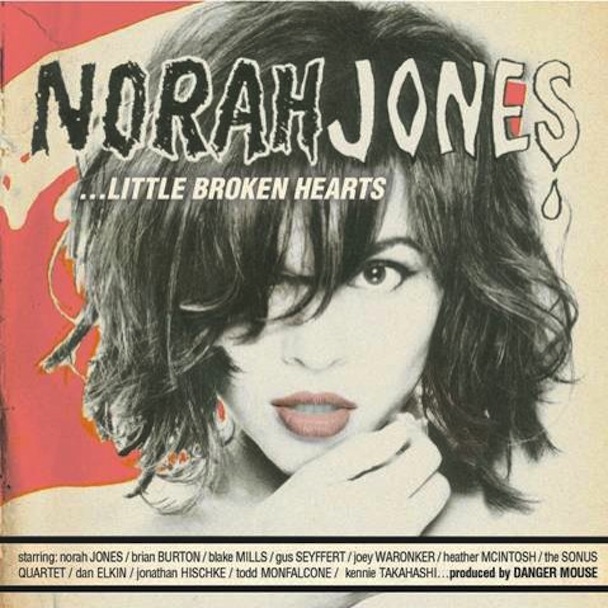Remember people’s reactions after Arcade Fire won the Grammy for Album of the Year? How about when Bon Iver won Best New Artist last month? Many of us were appalled by the perceived ignorance of the masses, but on a more subconscious level, perhaps we realized that our collective indie rock world is a much smaller bubble than we like to think. Whether it falls in with our tastes or not, popular music exists. It’s out there. And every now and then these two worlds — “our” tiny orb of demanding elitism and “their” big, imposing globe of top 40 radio potpourri — collide.
Norah Jones is a certified platinum recording artist. She has three number one albums worldwide and any of her first three albums, Come Away With Me, Feels Like Home, and Not Too Late, have individually sold more copies than all of Arcade Fire and Bon Iver’s albums combined. Yet for all her mainstream success, “Happy Pills,” her brand new single, is the first piece of her music that I’ve actively sought out (Rome notwithstanding) — and that was strictly for review purposes, anyway. For whatever reason, I’ve always associated Jones with the type of top 40 adult contemporary that couldn’t possibly be worth my time. My ears just don’t have time for that kind of music. But as it turns out, the song is not only completely tolerable — it’s actually pretty darn good.
“Happy Pills” tells the story of Jones emancipating herself from a relationship and finding that she’s better off alone — or at least without whoever it is she’s leaving behind. The narrative is far from groundbreaking and the lyrics themselves read like a high school poetry assignment (“with you gone, I’m alive / makes me feel like I took happy pills / and time stood still”), yet the song itself is undeniably addictive and pleasant. Thick, clean percussion fills the track — what else would you expect from a Danger Mouse production? — and Jones’ soulful voice takes on an almost sinister tone, as if she wants to make the mate she’s left behind writhe with the realization that she’s happier without him. The background and chorus vocals borrow a similar melody structure to that of a personal favorite, “Baby Love.” Beyond just the vocals, Jones’ new song captures many of the components that made The Supremes’ track so infinitely endearing: simplicity, succinct packaging (the song runs only three and a half minutes), and universally digestible subject matter.
This is a song that, on name and naive perception alone, would have not only fallen off my radar, but likely been flung from it with a velocity usually reserved for Chris Brown or any of the American Idol winners. But rightfully, this song sticks. Sometimes it’s as simple as this: good music is good music, no matter how alien our predispositions may be.

